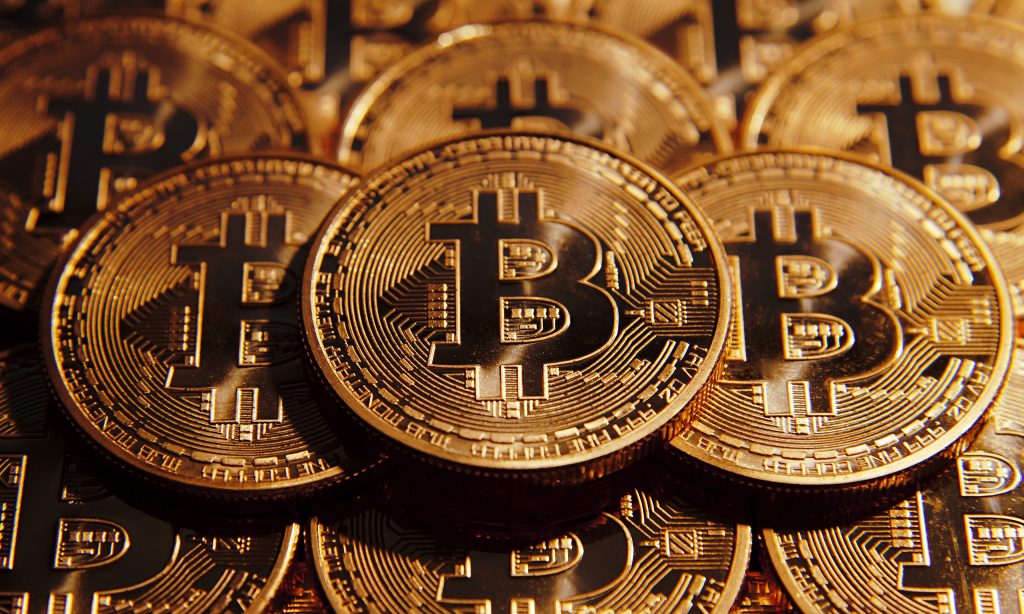
Five things you need to know about Bitcoin
Since about December, it feels like we’ve been split into two camps: people who are trading Bitcoin (and won’t stop talking about it), and people who are desperately trying to work out what it is.
The value of Bitcoin shot up at the end of 2017. There were stories of 18-year-olds becoming millionaires, lots and lots of graphs of big spiky lines boomeranging around the internet, and all your friends in the pub wouldn’t stop talking about what the graphs of big spiky lines meant and which cryptocurrency was definitely going to be the next big moneymaker, instead of normal things, like what drink to get next (that might have just been me).
Anyway, it feels like it’s high time we got to grips with what it’s all about.
Let’s start with the basics: it’s a type of online currency
Bitcoin is an online form of money, or a . It’s used to buy and sell things online faster and without any of the charges you could normally get.
Bitcoin is created by a process called mining. It functions on a complicated system of computer programming, which logs all transactions. To encourage people to contribute to that system, new bitcoins are created by solving a kind-of computing puzzle which adds to the log: solve the problem, you get a new bitcoin which you can then buy things with, that releases Bitcoin into the system – not too dissimilar from how control how much money is printed, except it’s up to you to print that money.
If you don’t want to do the maths – you can just buy pre-existing Bitcoin online. Kind of like walking into a currency exchange before you go on holiday.
And it’s not the only one
While Bitcoin is by far the most popular cryptocurrency, there’s a seemingly endless list of alternatives. All have a slightly different purpose: the camera company Kodak, for example, just announced its own cryptocurrency specifically for buying and selling image rights online.
Like all currencies, its value goes up and down
Because the amount of Bitcoin in circulation is limited, it holds a value. And like all currencies that value can rise and fall spectacularly, depending on how many people want it.
In the past few months, the value of Bitcoin has shot up pretty rapidly. Let’s use this example: in 2010, a developer bought two pizzas for 10,000 bitcoins. In November 2017 bitcoin, those 10,000 would have been worth $100 million. Two. Pizzas.
Those rocketing prices mean you’re more likely to hear people talking about how much their Bitcoin are worth, rather than what they’re buying with them (unless it turns out they’ve bought two very expensive pizzas, of course).
If you trade Bitcoin, you’re essentially betting on how much they’ll be worth in the future, in the hope you might make some cold hard cash.
The problem is, what goes up has to come down. When the price of something goes up so high people stop wanting to buy it, that can lead to people who own that ‘asset’ panicking and selling it, and then the value of it drops.
It’s what’s called a bubble, and is often spoken about in terms of property, or stock markets. Bitcoin’s rise and rise (and rise) in value means people are pretty worried that’s going to happen.
People are excited it’s not controlled by central banks
Bitcoin isn’t just a way for that guy who sits next to you at work to make a huge amount of money and then brag about it. The principle behind it is pretty revolutionary. According to its fans, Bitcoin’s big benefit is that it’s controlled by its users (a huge international peer-to-peer network) rather than governments.
Because Bitcoin is controlled by this big international love-in, it means you can buy or sell stuff from other countries without any charges, and it also means that even if its value does crash, people wouldn’t lose out in the same way they do currently.
Take the pound, for example. If Brexit caused this huge crash in the value of the pound (like people keep saying) then it would feel a lot more expensive to buy, say, a wheel of brie from a store in France. If your money was in Bitcoin, it would still be worth the same amount everywhere: if the value of Bitcoin drops in the UK, it’ll drop the same in France, Japan, Timbuktu.
Which means governments and central banks aren’t quite sure what to do about it
All this leads to an uncomfortable truth for governments. This whole new form of money has emerged, and they have no control over it.
Ole Bjerg, an associate professor at Copenhagen Business School, told Mashable that the rise of Cryptocurrencies is forcing governments and central banks to ask tough questions about their role in the economies of the future. Crypto-payments aren’t traceable: which means they think it could facilitate crime: people can buy things illegally online using Bitcoin, and Bitcoin has been demanded as ransom.
Some countries have explicitly banned people from using Bitcoin. On 10 January, South Korea, which was one of the world’s biggest markets, announced it was trying to crackdown on Bitcoin. Local Bitcoin exchanges were raided by police and tax authorities over alleged tax evasion, and the government claimed trading was contributing to gambling addiction. The value of Bitcoin subsequently fell by 13.2 percent.
On the other side of the coin (sorry), some countries have accepted cryptocurrencies are a thing, and are working out how to get in on the party: the US, Russia, and Japan are all working on their own digital currencies.



